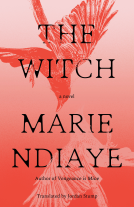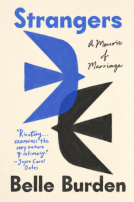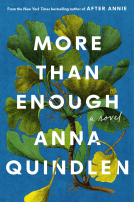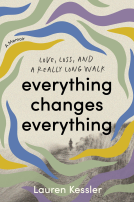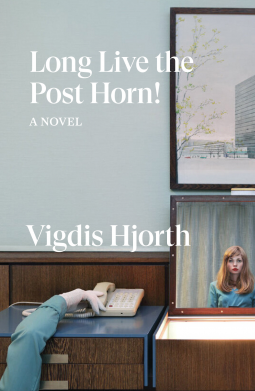
Long Live the Post Horn!
by Vigdis Hjorth
This title was previously available on NetGalley and is now archived.
Send NetGalley books directly to your Kindle or Kindle app
1
To read on a Kindle or Kindle app, please add kindle@netgalley.com as an approved email address to receive files in your Amazon account. Click here for step-by-step instructions.
2
Also find your Kindle email address within your Amazon account, and enter it here.
Pub Date Sep 15 2020 | Archive Date Sep 15 2020
Verso Books (US) | Verso Fiction
Talking about this book? Use #LongLivethePostHorn #NetGalley. More hashtag tips!
Description
"A brilliant study of the mundane, full of unexpected detours and driving prose. Hjorth's novel ingeniously orbits the intimate stories that are possible only when a character has put words on paper and sent them through the post." – New York Times Book Review, “The Best Post Office Novel You Will Read Before the Election”
"Vigdis Hjorth is one of my favorite contemporary writers." – Sheila Heti, author of Motherhood and How Should a Person Be?
From the author of the 2019 National Book Award Longlisted Will and Testament
Ellinor, a 35-year-old media consultant, has not been feeling herself; she's not been feeling much at all lately. Far beyond jaded, she picks through an old diary and fails to recognise the woman in its pages, seemingly as far away from the world around her as she's ever been. But when her coworker vanishes overnight, an unusual new task is dropped on her desk. Off she goes to meet the Norwegian Postal Workers Union, setting the ball rolling on a strange and transformative six months.
This is an existential scream of a novel about loneliness (and the postal service!), written in Vigdis Hjorth's trademark spare, rhythmic and cutting style.
Advance Praise
Previous praise for Will and Testament:
Longlisted for the 2019 National Book Award for Translated Literature
Longlisted for The Millions 2020 Best Translated Book Award for Fiction
“Like Knausgaard, Hjorth is writing against repression, against the taboo on telling things as they really are. But he urges us to look at dead bodies; she forces us to regard bleeding souls. Hjorth seems to have formulated from her experiments with living models a model for living, in which exposure—of the self and of others—serves a larger purpose.”
—New Yorker
“The cumulative effect is hypnotic. Hjorth works finely parsed and brilliant variations on her unrelenting theme of familial mistrust and misunderstanding.”
—New York Times
“A powerfully humane novel about inheritance, trauma and the inheritance of trauma.”
—Times Literary Supplement
“Will and Testament is a compulsively readable novel, one that turns questions of shame into weapons against silence.”
—Paris Review
“Hjorth’s thoughtful, drily funny, and often devastating novel will leave a deep and lasting impression on readers.”
—Publishers Weekly
“The strength of the novel lies in Bergljot’s convincing and continuing vulnerability, in her mixed feelings and her flaws … A clear-eyed and convincing story of a family’s doomed attempt to reconcile and the limits of forgiveness.”
—Kirkus
“Precise, contemplative, and deeply moving, it’s a masterful unpacking of the tensions, secrets, and bonds that hold a family together.”
—Hannah Williams, Los Angeles Review of Books
“Readers pining for a dose of brooding Norwegian writing in the style of Karl Ove Knausgaard may be drawn to this account of a woman’s struggle to achieve reconciliation with a family that refuses to recognise she was the victim of abuse at the hands of her own father.”
—Ángel Gurría-Quintana, Financial Times (“Best Books of 2019: Fiction in Translation”)
“One of the year’s gems in translation was Will and Testament by Vigdis Hjorth, translated by Charlotte Barslund. A story of abuse, inheritance and the battle for the truth among a privileged Norwegian family, it grips like a vice while interrogating national as well as individual self-conception.”
—Guardian (“Best Fiction of 2019”)
Available Editions
| EDITION | Other Format |
| ISBN | 9781788733137 |
| PRICE | $19.95 (USD) |
| PAGES | 240 |
Average rating from 25 members
Featured Reviews
 Abby S, Reviewer
Abby S, Reviewer
Unique a novel that drew me in to the story the characters life.A woman living alone navigating work family relationships.I was so involved this story her life issues a book so lyrically written so mesmerizing in its own quiet way.Highly recommend.#netgalley#versobooks
A feeling of something real, not imagined. That is the powerful feeling that only receiving a postcard can give you.
Ellinor seems out of touch with reality. From the post office representatives she learns how to be proud at the work she does. It is their mission to turn dead letters into living ones, and that is why the people working at the post office are so important: because the right letter at the right time can change lives.
Long Live the Post Horn! shows how you can get energy and passion from people that are passionate. It's contagious. The post office workers’ passion might save Ellinor in the end. This assignment could be exactly what she needs to held her head up high again. She starts to think about the purpose of her life. About her contribution to life and society, and more concretely, about what she can do for the post office workers she is hired to help.
There is no great buildup towards a climax, but instead you’re treated to many pages of quiet contemplation, making you feel like you're reading the same thoughts (of loneliness) all over. Ellinor makes progress with her thoughts, but it feels like a long book while it is only 240 pages. After some great scenes involving her trip to Alta (where she finds passion!) and her boyfriend, the book focuses on her job for Postkom: the fight against the new postal directive. Then, all of a sudden, the book gets wrapped up within a few pages. The end.
My opinion about this book is neutral: it was so-so. I enjoyed reading the scenes involving her (thoughts about her) boyfriend Stein and her trip north to meet a post office worker about the letter he revived. I also liked reading her thoughts about where she should take her life next, and the small steps she managed to take towards her ‘improved’ future. The work-related part (opposing the directive) didn’t interest me: I was reading about (political) facts while I was more interested in reading about the main character’s non-working life instead.
Some pages grabbed my attention, but I got distracted on others. I caught myself thinking about other things while my eyes were still reading the lines. It's not a bad book, it just couldn't hold my attention.
 Kim R, Reviewer
Kim R, Reviewer
Loved this, my goodness. Vigdis Hjorth transports the reader into the strange life of a very lost woman. It’s a wild ride with Ellinor and I have to say by the end of this book I really cared about the postal directive. I don’t even live there. But hey, I’m rooting for these folks.
Very clean writing. Descriptive lamentations by the narrator with heartbreaking text at times.
This was just the book I needed to fall into to take my mind off the crazy world.
Moving, engaging, powerful; Hjorth's "Long live the Post Horn!" resembles Knausgaard's writing as it is, basically, a study on loneliness.
 Calzean J, Reviewer
Calzean J, Reviewer
The book is like eating a slightly disappointing meal at a fine restaurant. The elements are all there. The chef has the talent. But there is some ingredient missing. But what is that ingredient?
Ellinor works in a three person PR firm. She is full of mixed feelings, but seems to lack empathy or connection to her work, lover and family. The book is full of her thoughts, insecurities and attempt to understand herself.
She starts to garner this understanding when the firm takes on a task of lobbying against a EU directive about articles less than 50 grams. A strange topic to provide a focus a story of personnel discovery on but it works.
The whole thing comes together but I felt something was missing to provide a better ending, a taste that would have lingered longer.
An interesting read and I enjoyed it for the most part but it did lose me a bit halfway through when a majority of it became about politics. I dont know if it's because I'm not familiar with Norwegian politics and policy but it just didn't grab my attention the way the first half of the book did. I'd still be interested in reading more from this author.
 Laura V, Reviewer
Laura V, Reviewer
** spoiler alert ** Ellinor lives a grey existence or anyway that's how she feels about it.
With a couple of business partners she runs a PR company, she has a boyfriend, Stein, who has a child from a previous relationship, a mother she resents and a sister who lives a suspended life while waiting for pregnancy and motherhood.
Ellinor seems to have no attachments or drive in her non-existence and the people who surround her also seem to be stuck in this predicament. Suddenly though one of her business partners quits everything leaving a note where he refers to Ellinor as a "spineless bxxxh" and eventually appears to have committed suicide.
This is the beginning for Ellinor of an internal quake where she questions why she is living at all, her emotional disconnection with her life and people in it and finally, through an epiphany while working on a job for the Postal Workers Union, how she wants to live her life ("Might life be a serious business that required something of you, a daunting enterprise?").
The plotting was well developed throughout though perhaps the ending just felt rushed and the register more superficial than the rest of the book. The sense of despair and greyness were well communicated, but the up beat tempo in tone and events at the end were unable to credibly lift the mood and inject the story with the passion and drive that it perhaps was aiming for.
Overall it was a well written and engaging book which probably would, with the right casting and directing, translate well into a movie. But ultimately it is not a book that one is likely to find themselves thinking about years, months or even weeks after having read it.
Many thanks to Verso Books and NetGalley for sending me a copy of this book in exchange for an honest review.
#LongLivethePostHorn #NetGalley
 Reviewer 499835
Reviewer 499835
This novel was an exceptional reading experience. Every sentence sent me somewhere. Every sentence delighted or energized or moved me. Do you know how hard that is to do with language? Kudos to Hjorth's translator, as well, for extending Hjorth's language to me. This is the kind of novel with a narrative drive that makes you want to know what happens on the next page, but that also invites you to linger on the sentences as they come along, because you've never read sentences that are quite like these sentences before. The narrative exuberance here reminds me of Saul Bellow. Thanks, Verso, for providing me an e-copy through NetGalley, and I'll surely be buying this novel when it's published for the pleasure of re-reading it with a book in hand.
This story follows a lonely woman realising she is lonely. She struggles to connect to people, especially her long term boyfriend, Stein. She reads an old diary of hers in which she no longer recognises the self reflected in it. She wanders through the world with it only minimally touching her, that is until her colleague disappears and appears dead washing up on the Calais shore. This event changes everything. It is an interestingly written story, very functional in its writing style. The setting and plot is distinctive and intriguing.
 Karen K, Reviewer
Karen K, Reviewer
I received this from Netgalley.com.
Ellinor lives a grey existence, at least that's how she feels about it. She questions why she is living at all and why she is emotionally disconnected from her life and the people in it.
It's a quick read but not a terribly lively one, it didn't keep my full interest and attention to the end.
2.5☆
I thoroughly enjoyed this book. It felt like getting inside of a person's mind and staying there a while thanks to an absorbing narrative in the first-person. Kudos to the author and the translator!
In this relatively short novel, the prose is clean and effective. In a time span of few months, we read about a personal aftershock of a devastating event in Ellinor's life, a lonely, introverted, thirty-something businesswoman, and her struggle to continue to live and work while trying to find a new meaning in her life and relationships during this hardship.
Right this time, a project about the postal service of Norway comes in her way and she starts (reluctantly) working with postal workers union to deflect an EU directive which will have a disruptive effect on many people’s lives, especially those living in the remote parts of Norway.
With this task, she finds a chance to take a glimpse of different ways of living and different motivations to keep going. Will working with ordinary people rather than big multinational companies change her perspective? Will she be able to see her own life under a different light when working for these people?
Along with the heroine, the reader finds themselves thinking about several things: loneliness, routine, memory, family relations, professional life, romantic involvement, finding a purpose in life, giving up, and making noise for the right cause.
Thank you NetGalley and Verso Books (US) for giving me access to this extraordinary novel.
 Paul F, Reviewer
Paul F, Reviewer
Vigdis Hjorth’s novel "Leve posthornet!" won the Norwegian Critics Prize for Literature (also won previously by many of my favourite authors including Dag Solstad, Per Petterson, Karl Ove Knausgård. Lars Saabye Christensen, Roy Jacobsen), an award she was to win again in 2016 for her Arv og miljø (translated into English by Will and Testament by Charlotte Barslund – my review: https://www.goodreads.com/review/show/2980751815)
The 2012 work has now been translated into English, again by Charlotte Barslund as Long Live the Post Horn!, a title taken from the novel’s epigraph by Constantin Constantius in Repetition: A Venture in Experimental Psychology, by Søren Kierkegaard:
"Long live the post horn! It’s my instrument for many reasons, principally because you can never be sure to coax the same tone from it twice; a post horn is capable of producing an infinite number of possibilities."
Rather unusually, the novel revolves around the successful campaign by grassroots campaigners in the governing Labour party against the adoption in Norway of an EU Directive on liberalising the postal market. See below for the real-life background, which will be less familiar to the UK reader than Hjorth’s original audience, albeit it did play an odd role in the Brexit process.
Our first-person narrator, Ellinor, is a thirty-five-year-old media consultant working for a three-person PR agency, KraftKom, that she co-founded.
As the novel opens, one of her co-founders disappears, leaving a note saying he has quit the firm and indeed the country, in the aftermath of a messy divorce, taking to the seas in his boat. He is later found drowned in Calais harbour, with suicide suspected.
Ellinor and the remaining partner, Rolf, have to pick up his main assignment – a commission from Postkom, the Norwegian Postal Workers Union:
"We sat in the kitchen with coffee and remembered him as he had been towards the end, even more hunched, a sombre, conflicted figure we saw too late, a dark cloud dissolving. Dag at sea in his boat, drawing up his life’s balance sheet. When did it start to go wrong, when did the downward spiral begin? When he gave up politics for journalism? When he gave up journalism in the hope of making money as a PR consultant? When it became clear that he wouldn’t get rich from his PR firm, when he gave up becoming rich in other ways, when it was suddenly too late? When his wife left him and he lost faith in the postal directive?
…
The EU’s third postal directive was about allowing competition for letters weighing less than 50g. It didn’t sound like a big deal. KraftKom had been hired by Postkom, the Norwegian Post and Communications Union, to help them fight against its implementation. The first and second directive had been passed by Parliament with no objection, and the third one was bound to go through, also without objection, but we had to give them what they were paying us for."
Ellinor herself seems to be going through something of an early mid-life crisis, feeling rather detached from her own life. She has a lover, a divorcee, but is rather taken aback when he wants her to meet his young son, and when he produces a ring as a gift – she isn’t even prepared to give him a key to her flat and ultimately her life seems listless, almost apathetic.
"I never bothered changing the clock on the dashboard in my car because I would soon have to change it again, I didn’t put my ski boots in the basement lock-up in the summer because it would soon be skiing weather again, and I’d only just filed my tax return when it was time to file it yet again. I felt exhausted,
…
I had read about people who don’t feel pain and are constantly at risk of injuring themselves as a result. Was I like that? Did things happen without me feeling them and would I suddenly one day be fatally wounded."
Ellinor and Rolf find their usual slick PR scripts don’t work with the postal workers, who are passionate to the point of over-emotion about their role. But gradually Ellinor starts to absorb some of the passion, in a piece that echoes the novel’s title:
"The secretive gap of the letter box, I wrote. Too narrow for the biggest items, which must be collected with a delivery card, goods ordered online from the great abroad. Packaged and stamped, sent by courier, by car, whistling trains or planes and eased onto moving rubber and sorted by country, county, city and street and eased into the darkness of postbags before being transported by the conveyor belt and the cart and the postman’s decisive hands, every link equally vital. The postman’s tireless wandering from stairwell to stairwell with the precious cargo. The steadfastness of the postman! Come rain or shine, the postman calls day after day, and the certainty of it, the predictability of the Post Office, the repetition! Long live the postman, the post box, the Post Office and all its beings!"
And when – no spoiler as this would have been headline news in Norway at the time – their campaign proves successful, Ellinor feels she can apply the lessons learned to her own life:
"It doesn’t mean much in the greater scheme of things, of course not, it’s just a postal directive. One small step for Labour’s grassroots, but a life-changing one for me because through working on the postal directive, I had learned the value of this step for living well and in good spirits. I knew now that no one is insignificant and that every day every one of us must choose whether to build civilisation or the opposite, let the world fall apart, and that even the smallest things present each of us with a challenge."
Ultimately, I didn’t find this as powerful as Will and Testament. It wasn’t that the postal story was boring, indeed that part of the novel and the underlying real-life story intrigued me, but I was less taken by the story of Ellinor’s personal development and the slightly forced link between the two.
And – unbeknown to the author at the time the book was published – the victory proved fleeting. The ruling Labour party was defeated at the next election in 2013 and the incoming centre-right coalition adopted the Directive.
3.5 stars
Thanks to the publisher via Netgalley for the ARC.
BACKGROUND
As a member of the EEA but not the EU, Norway has a nuanced position with respect to EU Directives. It is informally consulted on any proposal for a new law from the Commission, and its experts participate in drafting sessions, but it has no voting rights on the final law. And once passed it is required to adopt the Directive in to its own law “as closely as possible.”
However, it does have a “right of reservation” in exceptional circumstances to argue that the law is not suitable for Norway (https://fullfact.org/europe/eu-facts-behind-claims-norway/).
This right has only been formally invoked once.
In 2008, the EU passed Directive 2008/6/EC, amending Directive 97/67/EC, as amended by Directive 2002/39/EC – the so-called Third Postal Directive, fully opening up even letters to full competition. In Norway this would have required the Norwegian postal service (Posten) to give up its monopoly on letters weighing less than 50 grams.
In 2011, following a grassroots campaign within the governing Labour party which forced the leaders of the government to change their position in favour of adoption, Norway informed the EU that it would be exercising their right not to implement the Directive (https://www.newsinenglish.no/2011/05/23/historic-no-to-an-eu-directive/)
This issue came up in both the Brexit campaign, raised by the Leave campaign who were at that point arguing for a EEA position as one option (http://www.conservativehome.com/thecolumnists/2015/10/daniel-hannan-mep-norways-relationship-with-the-eu-is-better-than-being-a-member-but-we-could-do-even-better-than-that.html) and later in 2017 when a cross-party group, including Conservative rebels, argued in favour of a Norway-plus style soft Brexit (https://www.bbc.co.uk/news/uk-politics-47734583).
What each group failed to realise when citing the precedent (and what was in the unknown future for the author when she wrote this book) was that after the Labour party was defeated in the 2013 general election, the new centre-right coalition government did adopt the Directive.
Readers who liked this book also liked:
Annabelle Gurwitch
Biographies & Memoirs, Health, Mind & Body, Humor & Satire
Benjamin Reynaert
Arts & Photography, Home & Garden, Reference

